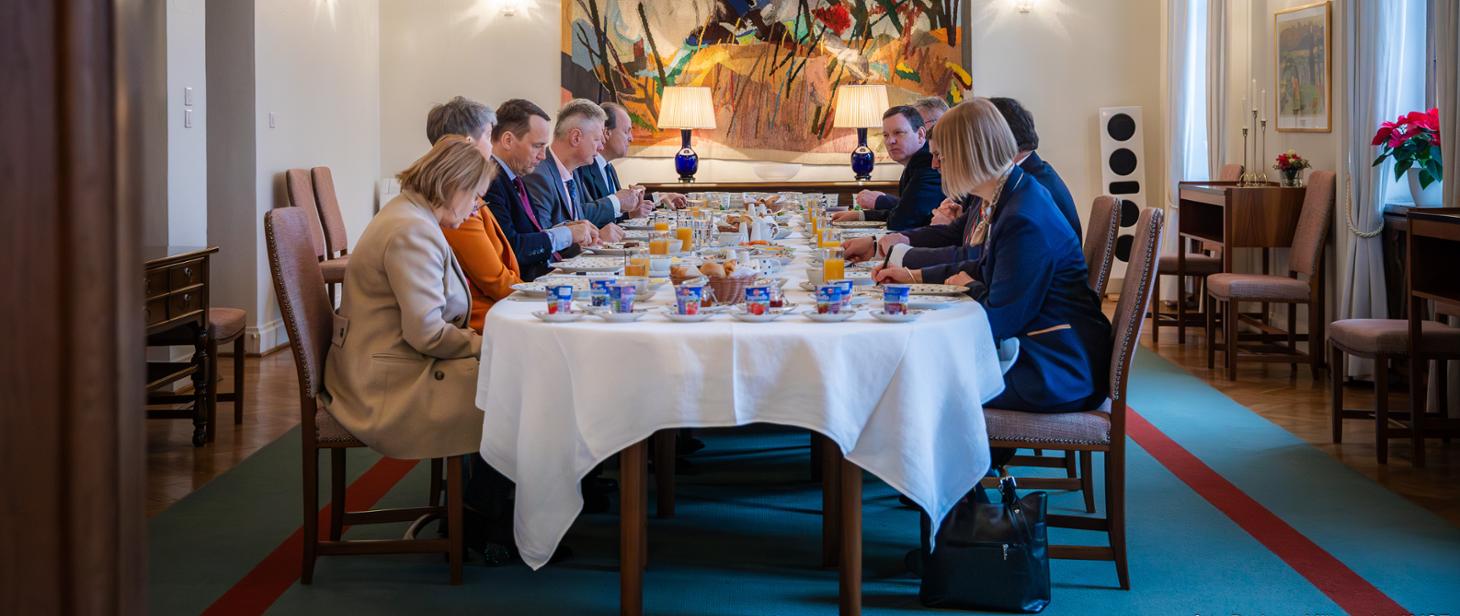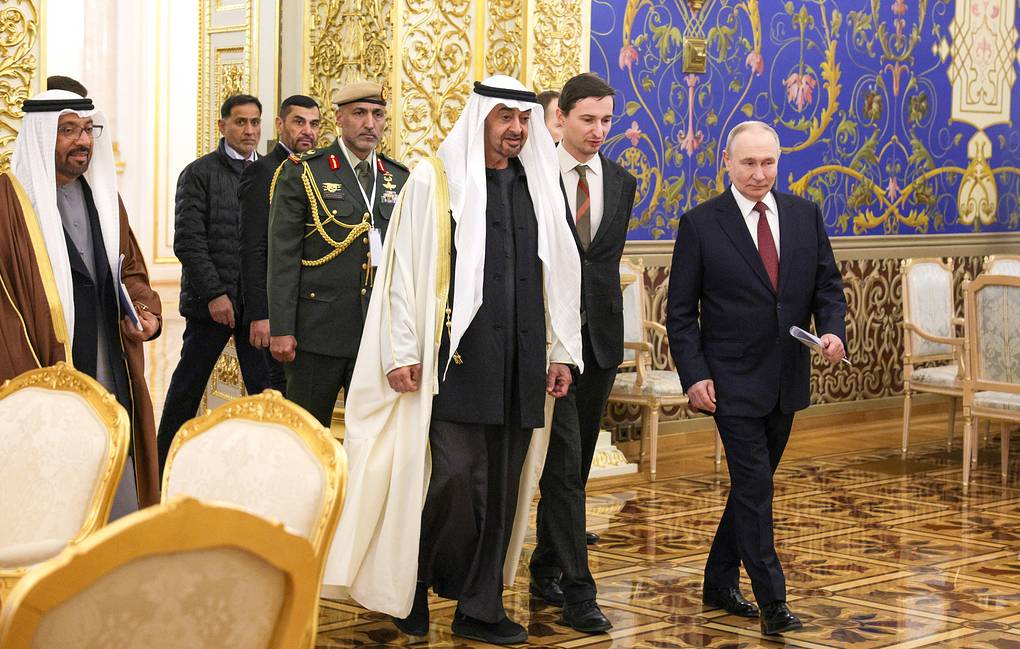NATO HOLDS FIRMLY AT EXTRAORDINARY CFE CONFERENCE WITH RUSSIA
NATO HOLDS FIRMLY AT EXTRAORDINARY CFE CONFERENCE WITH RUSSIA
The “Extraordinary Conference of the State-Parties to the Treaty on Conventional Forces in Europe” (CFE) can become a textbook case of Russian bluster, threats, and trade-offs proffered at third parties’ expense, all followed by retreat when faced with a united NATO position. Held on June 11-15 in Vienna at Russia’s initiative, the Conference ended without agreement on any of Russia’s demands, each of which challenged in one way or another the post-Soviet status quo in Europe (see EDM, May 25, June 8, 11, 13, 14) and without deciding on a possible follow-up.
Russia ended up isolated and defeated in this forum — a fact that NATO allies tactfully refrained from noting publicly on the morrow of the conference, in the expectation of a continuing dialogue with Moscow. For its part, Russia abruptly toned down its rhetoric when faced with this outcome (Itar-Tass, RIA-Novosti, June 15, 16), apparently realizing that the Kremlin’s bluff had been called.
President Vladimir Putin had threatened on April 26 to suspend unilaterally Russia’s compliance with the CFE Treaty (the 1990 original and the 1999 unratified adaptation) unless the treaty was changed in Russia’s favor and further concessions were made to Russia on the balance of forces beyond the treaty itself. Minister of Foreign Affairs Sergei Lavrov and First Deputy Prime Minister Sergei Ivanov (defense minister until recently and Putin’s heir apparent at the moment) followed up during May and early June with similar threats of a “moratorium” on Russia’s compliance. Russia would, in that case, unilaterally withdraw from the CFE Treaty’s system of mutual verification and inspections of forces, exchanges of information, and pre-notification of military movements.
During the Vienna Conference, Russia demanded ratification of the 1999-adapted CFE Treaty by NATO countries by an arbitrary deadline (July 1, 2008) as a maneuver for bringing the three Baltic states — and hypothetical allied force deployments there — under treaty restrictions. At the same time, Russia sought a comprehensive re-writing of the treaty’s terms to Russia’s unilateral advantage, under threats to scuttle the treaty altogether, with the prospect of augmenting Russian forces in certain border areas.
Moreover, Putin and the Russian government challenged NATO on a host of international security issues other than the CFE Treaty, at the same time and in the same threatening style: Strategic missile defense, medium-range missiles in Europe, U.S. military installations in Romania and Bulgaria, and the status of Kosovo. Apparently, Moscow attempted to mix all these issues into one large deck of cards, hoping for possible trade-offs. As the Kremlin-affiliated consultant Vyacheslav Nikonov noted, Russia might obtain a net gain on at least one issue through this tactic (RIA-Novosti, June 11).
Russia’s most urgent demand was a de-coupling of NATO countries’ ratification of the 1999 CFE Treaty from Russian fulfillment of the 1999 Istanbul Commitments to withdraw the troops from Georgia and Moldova. While about to fulfill most of those commitments in Georgia, Russia refuses outright to do so in Moldova and sought a trade-off with NATO at Moldova’s expense. Thus, the outcome of the Conference turned on the issue of Russian troops in Moldova, with NATO as well as Moldova rejecting a trade-off. Some German diplomats sought to reinterpret the Istanbul Commitments in Russia’s favor but did not go as far as to break the Western consensus. U.S. Assistant Secretary of State Daniel Fried’s remark outside the closed-door Conference — “We shall keep faith both with our principles and with countries like Georgia and Moldova” (State Department transcript, June 12) — signaled that the United States and allies are handling the issue of Moldova as an important interest, not as a bargaining card.
In the closing hours of the Conference on June 15, separate but convergent statements by NATO collectively, Moldova, and Georgia reaffirmed the shared positions that ratification of the CFE treaty is conditional on Russia’s complete military withdrawal from Moldova and internationally certified closure of the Gudauta base in Georgia. For its part, Russia tried to pose as a bloc leader by producing a supportive statement from the Collective Security Treaty Organization, which consists of Russia, Belarus, Armenia, Kazakhstan, Kyrgyzstan, Tajikistan, and Uzbekistan. Of these countries, the latter three are not parties to the CFE Treaty, while signatory Armenia violates the treaty by concentrating treaty-limited, Russian-delivered combat hardware on the territory of Azerbaijan.
On the morrow of the Conference, official Russian reactions are parsimonious and relatively subdued, falling back on a process of negotiations and watering down the “moratorium” threat. Contrasting with the official declarations’ drumbeat in the run-up to the conference, Russian media coverage after the conference is also minimal.
According to Russia’s chief delegate, Anatoly Antonov (AP, International Herald Tribune, June 15-17), “If no further results are achieved, then a moratorium could become more of a possibility. We want to see some serious talking take place. This Conference was neither a tragedy nor the end of the story.” Nevertheless, Russia’s position as summarized by Antonov in the wake of the forum remains that the 1999 CFE Treaty has “become meaningless, is no longer viable” and that Russia wants to “re-establish the treaty’s viability” — some of the code-words for re-writing the treaty in Russia’s favor. Pending this, Moscow’s declared first-priority goals remain that NATO countries ratify the treaty by July 2008 while Russian troops remain in Moldova and that the three Baltic states sign the ratified treaty (Itar-Tass, RIA-Novosti, June 15, 16).
The threats as well as the trade-off tactics failed demonstrably at the Vienna Conference. Nevertheless, Moscow may persist with its trade-off tactics in upcoming negotiations, including Putin’s informal meeting with U.S. President George W. Bush at Kennebunkport, Maine, where Putin can undoubtedly add the issues of Iraq, Iran, and North Korea to his deck of bargaining cards.


